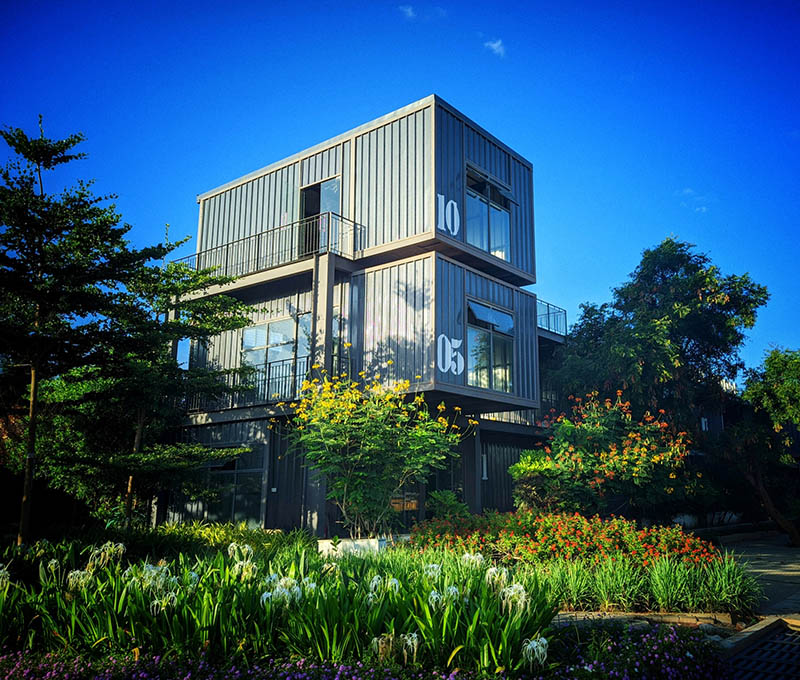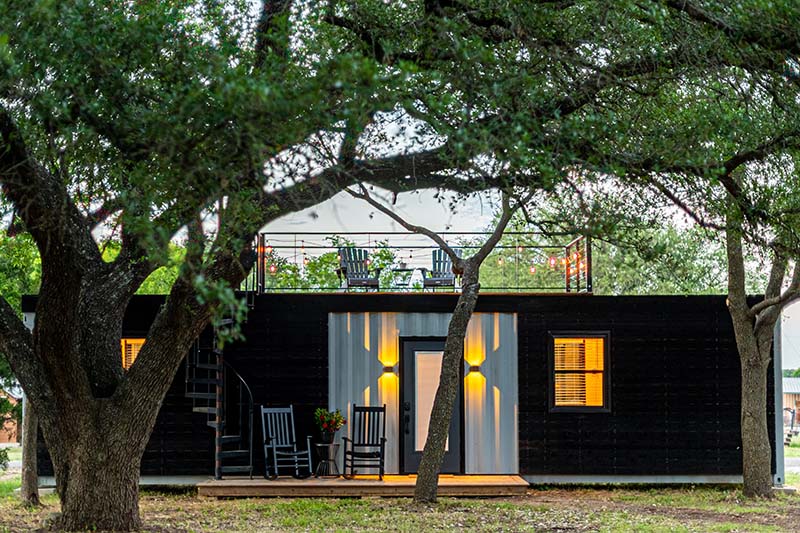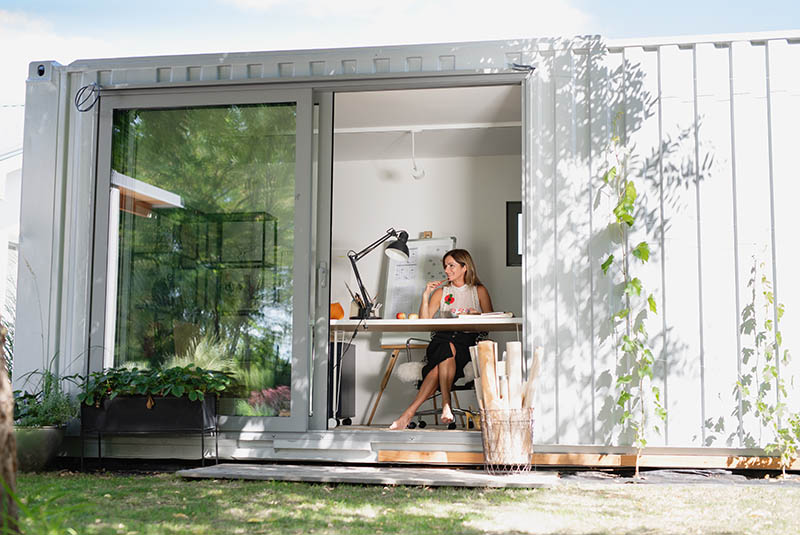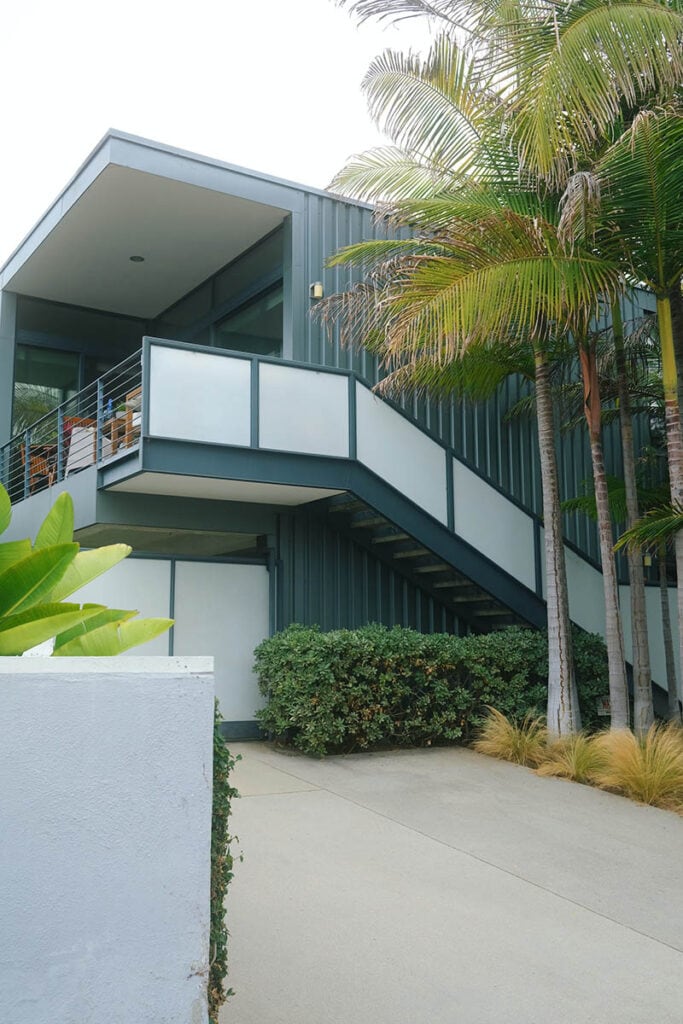What States Allow Shipping Container Homes? Facts & FAQ
-
Pete Ortiz
- Last updated:

Recycled shipping containers have been gaining steam as an economical yet accommodating answer to the post-recession housing market. Shipping container homes are inexpensive, eco-friendly, and often gorgeous with their modern designs. In most ways, they make a perfect option for first-time homebuyers.
But an easy sell for consumers isn’t always the simplest to pitch to zoning regulators. Not all locales welcome shipping containers, instead attaching a stigma previously reserved for manufactured homes. For others, the novel housing solution carries confusion and uncertainty over long-term value.
There’s plenty of variation in how governments handle containers as building materials. Let’s explore which states allow shipping container homes, so you can start planning your low-cost construction. Shipping container homes are legal in all 50 states and the District of Columbia.
What States Allow Shipping Container Homes?
Currently, shipping container homes are legal in all 50 states and the District of Columbia. That does not mean that every state makes them equally accessible. Local governments set zoning laws describing the various structures they’ll allow, with some being more accommodating for containers.

Zoning Laws
Cities set zoning laws defining the types and locations of commercial and residential structures. Counties follow, enforcing statutes if there is no city ordinance. Zoning laws include rules around the use, construction style and materials, and size of each structure.
Zoning helps local governments have some control over property markets to protect residents. Because shipping container homes are so new, the implications for their value and effect on the neighborhood aren’t entirely understood. The term “shipping container home” is also an abstract concept. It can be anything from the smallest 8×10 hovel to a sweeping modern mansion, a distinction that could change whether a project gets approval.
Some locales take a more unfavorable view toward non-traditional housing, like shipping containers. City governments may view them as a threat to home values in certain areas and be less likely to approve them. Some zoning ordinances only allow shipping container homes as temporary housing, accessory dwelling units (ADUs), or special-use structures. Others don’t allow them at all.
There are often ways around the limitations that might keep you from building a shipping container home in a specific place. One essential consideration is the foundation. Zoning decision-makers are much more open to a site-built foundation than a manufactured home on a permanent chassis. Other limits may center on the home’s size or aesthetic qualities.
The difficulty in building a shipping container home isn’t often due to outright bans but rather specific criteria that aren’t easily met. Talking with your city zoning regulators is crucial to understand the rules for your design.
Working with a local contractor with experience is an excellent starting point. They can help you develop plans that will build your argument for zoning and permits. If you can define your construction in detail and show the value potential for the property, you’ll have a better shot at receiving approval.

Building Codes
Building codes¹ govern the detailed construction and remodeling of structures for usability and safety purposes. Except for Wisconsin, states follow a version of the International Residential Code and various international fire, plumbing, and electric codes. Most single-family shipping container homes fall under the IRC. Extra-large (4+ floors) or multi-family dwellings may be subject to the IBC.
Information on building codes is available at the local level, and certain regions add criteria for unique conditions. Florida, for example, considers hurricanes, heat, and humidity in its codes. Fire and earthquake-prone areas also have stricter requirements to maintain a safe home.
Understanding the details is crucial, regardless of which code you follow if you want a permit application approval. Consulting with knowledgeable local architects and contractors will save you from wading through the minutiae. Builders and prefabricated shipping container home businesses will get the permits for you.
What Are the Top States for Shipping Container Homes?
Several details can affect whether one state is better for shipping container homes than another. Some provide more access to that particular modular style, and others are generally easier on homebuyers.
- Urban concentration: Rural areas often have more lenient zoning laws
- Proximity to shipping hubs: Coastal states often have more shipping containers, and you can save on transport costs
- Cost of land, property taxes, and insurance
Zoning laws, building codes, and local covenants play the primary role in how much freedom you have in the home’s design and placement. Let’s look at some states that might give you the easiest time with your shipping container home project.

California
Despite its rigid zoning policies, California has a reputation for progressiveness that can help your case when pitching a shipping container home. But housing prices are relatively steep. Most recommend saving money and increasing your chances of zoning approval by looking in the inland and northern sections of the state.
Louisiana
Louisiana has some of the most relaxed land use laws, making it ideal for a shipping container home. The average cost to build a house is low, and several shipping container homes and builder businesses already exist.
Oregon
Oregon has more strict zoning requirements for shipping containers as single-family residences. But if you can find the land that fits the bill, the state is lenient on how you use them to build your home. It’s an excellent state for shipping container homes that are off-grid. And with the state’s relatively high construction costs, recycled containers can save hopeful buyers a significant amount of money.

Tennessee
Tennessee may not have as many shipping container home builders as places like Texas, but the potential is fantastic. Construction is relatively inexpensive, and you’ll enjoy more land freedom than in most states. With beautiful weather and changing seasons, it can make an idyllic setting for an off-grid container home.
Texas
Texas generally has more lenient building regulations than most states. Houston is the largest city in America to have no zoning laws in the urban area. The state has several ports, so the inflow of materials is steady. Several prefab builders also operate in the state to make your shipping container dream home a reality.
Final Thoughts
Shipping container homes will likely gain wider acceptance as time moves on. The ICC even updated its 2021 building codes to clarify how shipping containers can transition to buildings. Meanwhile, places like Chicago are already looking into shipping container communities¹.
The economic and environmental benefits are apparent, and these repurposed units can go a long way in helping us solve the housing issue. Check with your local zoning and permit offices to learn how to take advantage of this cost-effective option in your state.
You Might Also Be Interested In:
- What is the State Insect of Wisconsin?
- What is the State Insect of Louisiana?
- Are shipping Container Homes Legal in California?
Featured Image Credit: Hithesh S, Unsplash
Contents



